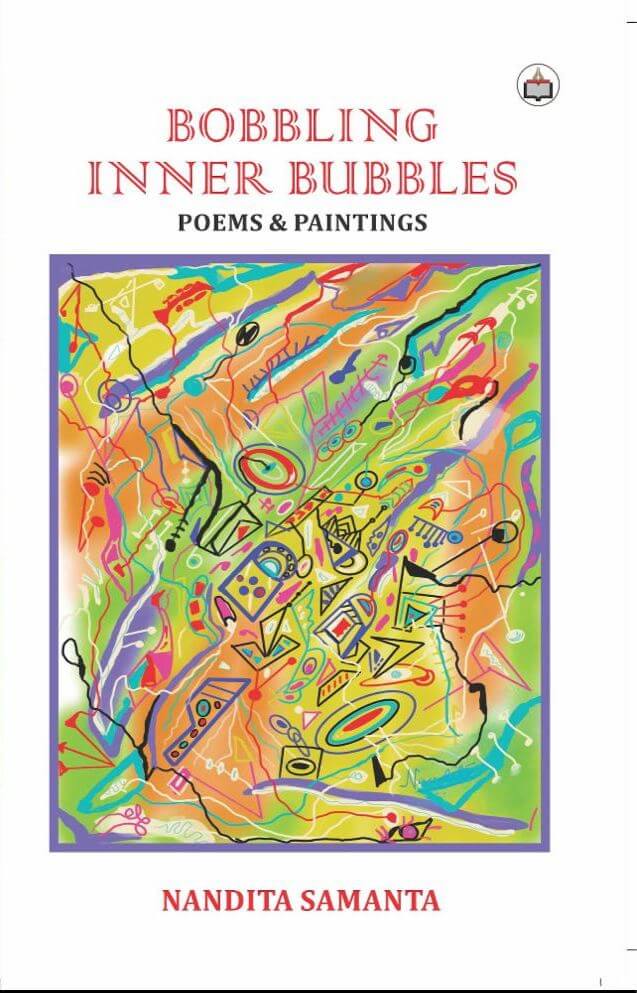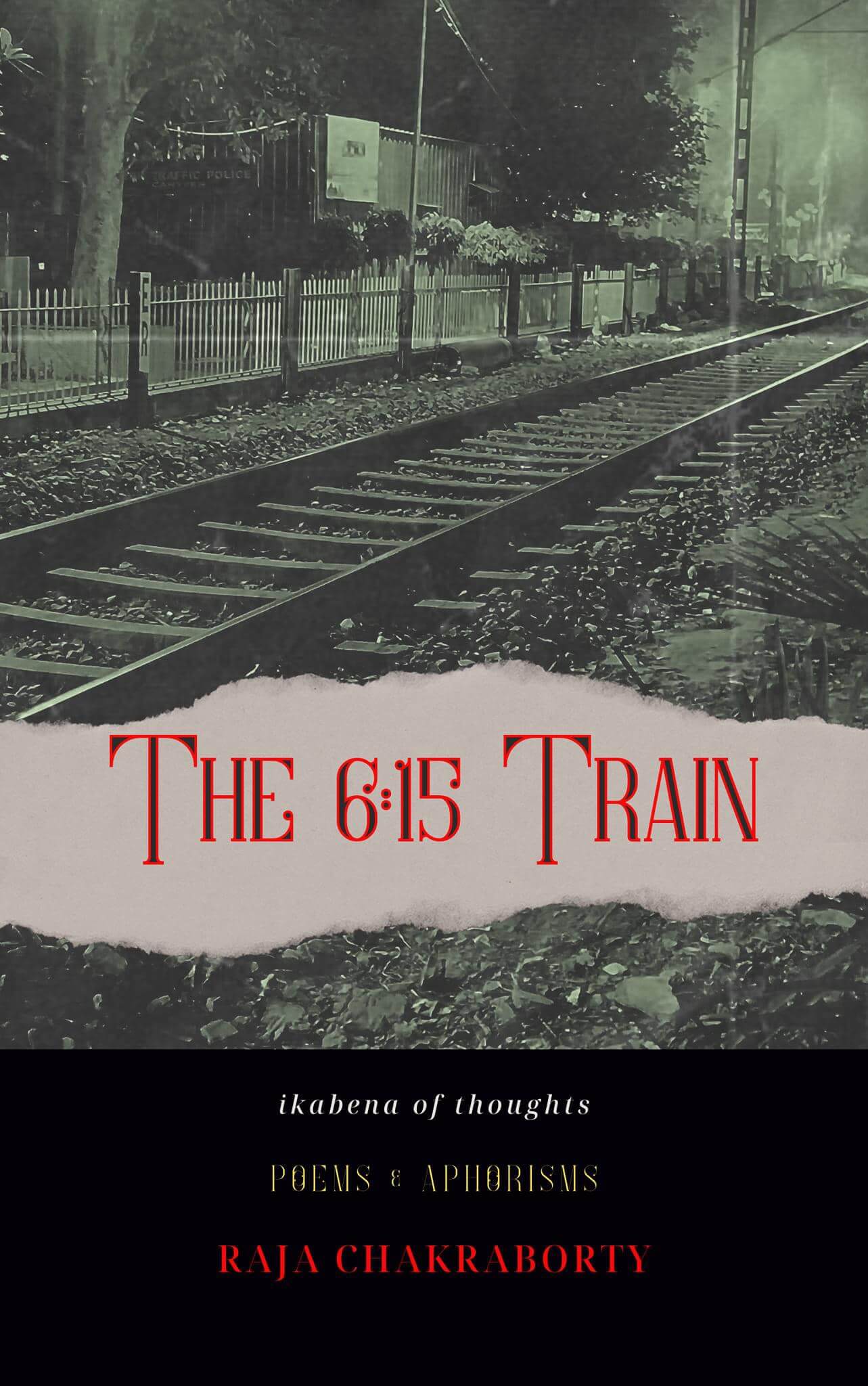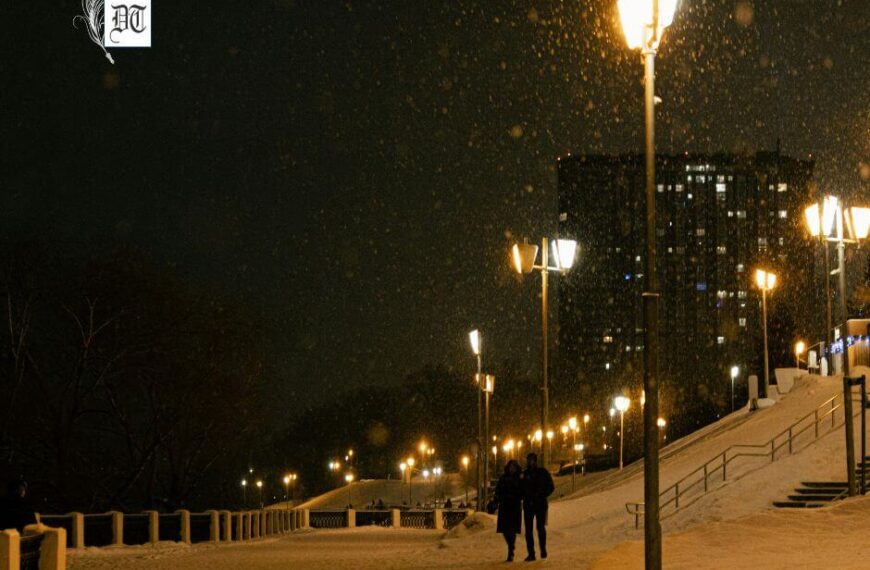Dr Paramita reviews Nandita Samanta’s “Bobbling Inner Bubbles,” a captivating blend of poetry and art, addressing themes of life, love, loss, and the human condition exclusively for Different Truths.
‘Bobbling Inner Bubbles’ is quite an intriguing title, which Nandita Samanta explains and clarifies at the very beginning of the book. She says when we experience a moment when our minds feel fuzzy and we struggle to concentrate or remember things, and this phenomenon is called “bobbles of the mind.” She tells us readers not to let the bobbles of our mind hold us back but instead let the bobbles of our mind evolve into bubbles and add a lustrous patina to our soul.
Plutarch had said, “Painting is silent poetry, and poetry is painting that speaks.” So how do you describe a book that has both paintings and poetry by the same lady? It is a one-of-a-kind book where the poems, the paintings, and the cover painting and design have all been done by the multitalented Nandita herself.
The poems in this collection of forty-two poems are short, but they linger in your mind and heart for long. Her first poem ‘Home’ expresses the very essence of home where she writes,
“We come back to a peaceful refuge under the same roof-
We, a FAMILY, and it’s our HOME.”
How beautifully Nandita has compared a monotonous life with an hourglass!
She writes,
"Habitually, every morning, I turn the hourglass upside down.
Perhaps one day, a slight alteration lead to more than one conclusion”
Nandita reiterates the concept of bobbles of the mind in her poem, ‘Kaleidoscope,’ where she writes,
“One year lent its way to the next,
and five thus were gone.”
Nandita has a pure heart, and she lashes out at deceitful people and she cries out,
“A truth without substantiation gets bracketed in doubt”
One of my favourite lines where Nandita talks about the language of love,
“I see my mom’s eyes say all about love without a word”
Poets are ever optimistic so Nandita, while talking about sadness, brings in the light of hope and says,
“At every sunset, a closure heralds another beginning.”
Nandita, like a wise sage, walks into her inner being and shuns superstition. She is a poet who has an underlying dislike of monotony, stereotypic conventions. So, she writes,
“The artist defy the laws of gravity, negating the conventions.”
A tea addict myself Nandita lures me to her morning brews
“A cup of steaming Duncan, Makaibari, or Lopchu.”
Nandita, in a heart-touching poem, “Borrowed Time,” which she wrote in the hospital after a sudden cardiac attack, reminds us that we all live with borrowed time.
Nandita can weave a poem out of anything and so how beautifully she says,
“I take out my cardigans not worn for years, not to wear
but, to smell the moments hidden inside.”
Poets are philosophers, and Nandita proves that again and again. Her thought on death rings so true,
“Death is not always leaving forever, it is often remaining in illusions.”
Yes, in Nandita’s words,
“Our undressed emotions get exposed like fireflies…”
So true Nandita, celebrating togetherness with your loved one is therapeutic.
I remembered Edgar Allan Poe’s saying that poetry of words is the rhythmical creation of beauty while reading Nandita’s poems.
The poet conceives poetry by writing down her unheard words, revisits her adolescent days, and remembers her long-lost home in the warmth of summer.
Nandita like most poets is a dreamer and she writes,
“In this limited lifespan
dreams grow agelessly…”
The painting and the poem ‘Grandma and Me’ reminded me of my grandma, who also gave me sweet meats, warm hugs, and unbelievable folklore.
She says,
“Have you seen the branch recoil When a bird takes its flight...
The painting is so close to her thoughts on the bird. The black silhouette of a bird flying away and the black silhouettes of the leaves against a blue sky.
Nandita Samanta ends with a poem titled ‘City Hospital’ where in the West Wing a baby is born and, in the South Wing, a man dies. What a lovely ending! She tries to bring in the cycle of life through this poem.
Enjoy this poetry collection with brilliant paintings! Immerse yourself in the myriad emotions and thoughts of this multitalented poet.
Cover image sourced by the reviewer






 By
By

 By
By
 By
By